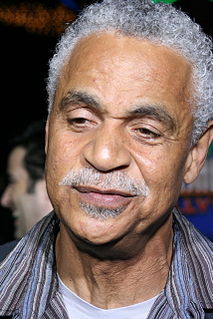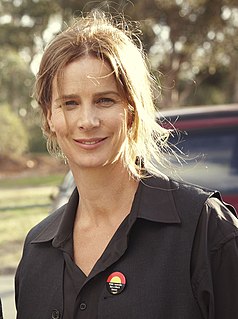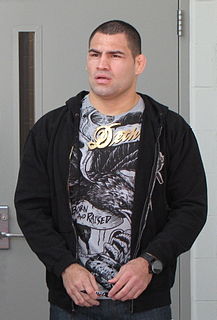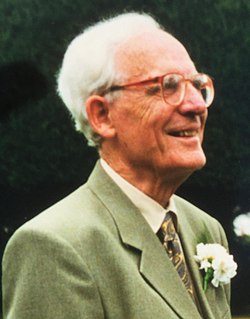A Quote by Ron Glass
What I was able to bring to the Christian part of it was the humanism and the humanistic point of view. It was the hook in terms of being able to make that adjustment. I wasn't born Buddhist, so I do have some other traditions to pull from.
Quote Topics
Related Quotes
But every point of view is a point of blindness: it incapacitates us for every other point of view. From a certain point of view, the room in which I write has no door. I turn around. Now I see the door, but the room has no window. I look up. From this point of view, the room has no floor. I look down; it has no ceiling. By avoiding particular points of view we are able to have an intuition of the whole. The ideal for a Christian is to become holy, a word which derives from “whole.
Something seems wrong to most people engaged in struggle when they see more people hurt on their own side than on the other side. They are used to reading this as an indication of defeat, and a complete mental readjustment is required of them. Within the new terms of struggle, victory has nothing to do with their being able to give more punishment than they take (quite the reverse); victory has nothing to do with their being able to punish the other at all; it has to do simply with being able, finally, to make the other move... Vengeance is not the point; change is.
Although I'm not Christian, I was raised Christian. I'm an atheist, with a slight Buddhist leaning. I've got a very strong sense of morality - it's just a different morality than the loud voices of the Christian morality.... I can't tell you how many films I've turned down because there was an absence of morality. And I don't mean that from any sort of Judeo-Christian-Muslim point of view. I'm not saying they're wrong and can't be made. But, fundamentally, I'm such a humanist that I can't bear to make films that make us feel humanity is more dark than it is light.
From a policy point of view, I don't think it's the right approach. I don't like the idea of having millions of people here for their entire life without being able to assimilate into America...From a political point of view, we've got 55 Democrats sent and a 72 percent support for a path to citizenship. It's just not practical to think we'll be able to pass any bill in the United States Senate without a path to citizenship.
Not being active, your name doesn't go out there as much, and you lose the popularity thing. Also, you're not able to make a living. This is what we do to make a living: we go out there and fight. Not being able to fight for a year and a half and not able to bring in money, it definitely sets you back.
I was trained professionally to connect with people as a therapist. That's job number one, having a empathetic regard towards someone who is sitting right across from you. Being able to pull whatever their needs are, their desires and the things that are troubling them and being able to address that in some way.
There is no longer a Christian mind ... the modern Christian has succumbed to secularization. He accepts religion - its morality, its worship, its spiritual culture; but he rejects the religious view of life, the view which sets all earthly issues within the context of the eternal, the view which relates all human problems social, political, cultural to the doctrinal foundations of the Christian Faith, the view which sees all things here below in terms of God's supremacy and earth's transitoriness, in terms of Heaven and Hell.
When I speak in Christian terms or Buddhist terms I'm simply selecting for the moment a dialect. Christian words for me represent the comforting vocabulary of the place I came from hometown voices saying more than the language itself can convey about how welcome and safe I am what the expectations are and where to find food. Buddhist words come from another dialect from the people over the mountain. I've become pretty fluent in Buddhist it helps me to see my home country differently but it will never be speech I can feel completely at home in.
Coming to Korea and becoming a singer, I always had two big goals personally. One was to be able to make it at some point so that I could do good things - I was always raised with an interest in social impact, philanthropy. The other thing was to be able to take my music and do it on a global scale.




































